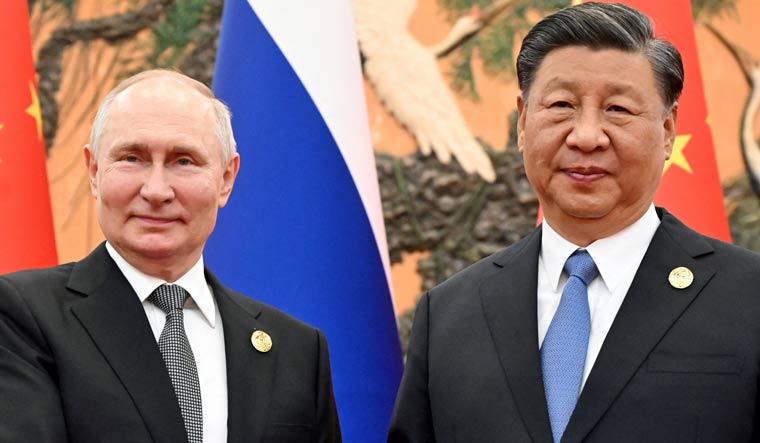With the ongoing wars in Ukraine and in Gaza sharpening the geo-political divide between the US-led West and the China-Russia axis, the recent close collaborations being planned by the latter bloc in cutting-edge military technology make for interesting reading.
On Tuesday, the head of Roscosmos, Russia’s space agency, Yuri Borisov announced that Russia and China were collaborating on a plan to set up a nuclear power plant on the Moon in 2033-2035.
“Today, we are seriously considering a project, somewhere at the turn of 2033-2035, for the delivery and installation of a power plant on the lunar surface with our Chinese colleagues,” Borisov said during a world youth festival in Moscow.
He added that it would be done “automatically, using robotic means”.
In March 2021, Russia and China had inked an intergovernmental MoU to set up an International Lunar Research Station, a road map for which was presented on June 16, 2021.
Interestingly, a top-level Russian delegation recently visiting Beijing has discussed cooperation and collaboration in detail on Lethal Autonomous Weapons Systems in the area of military application of artificial intelligence (AI) technologies, a development reported by both the Russian and Chinese state-owned media.
The Russian foreign ministry said in its communique on Friday after the Russia-China inter-agency consultations: “The sides had an extensive exchange of assessments of the situation in this area. The sides discussed doctrinal guidelines and initiatives of Russia and China, related to application of AI technologies for military purposes. Special attention was paid to the coordination of actions within the Group of Governmental Experts on Lethal Autonomous Weapons Systems (GGE on LAWS).”
The foreign ministry statement also reaffirmed the similarity of the Russian and Chinese approaches to military application of artificial intelligence. The domain of aerospace and artificial intelligence, among other niche technology areas, are the new battlegrounds where the US-led West and the China-Russia axis continue to confront each other. Besides extensive collaboration in conventional military research and development, the other areas of cooperation include the cyber domain and critical materials.
The emergence of China’s Xi Jinping and Russia’s Vladimir Putin as national leaders in their respective countries is commonly understood to be a strong signal that the unipolar world was changing to a multipolar one with the emergence of the China-Russia bloc.



